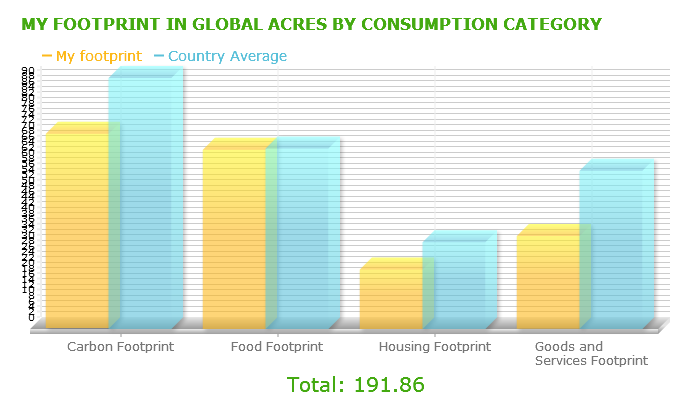Recalculated footprint:
Original Footprint:
I was actually really excited to see that my footprint went down throughout the quarter. Although, I made small changes I didn't realize how much of a positive impact my changes would have. Even though I'm still using 4.51 earths ( compared to 4.94) I was still proud that the changes I made were reflected in my recalculated footprint.
My three goals were:
1. Reduce my footprint by only eating out (either sit-down or fast food) one day a week.
2.Only eat meat once a day, except two days a week I would go vegetarian.
3.Take shorter showers.
After evaluation of my goals during the middle of the quarter, I realized I needed to put more effort into making a bigger impact by making my goals a little more challenging. Through this is when I decided that I needed to go vegetarian two days a week, but I also realized that I had been letting a few of my goals slip away as the quarter went on. After this I thought that I needed to put more effort into making sure I succeeded with the goals that I had set out to accomplish. I am happy to say that most weeks (I can't say I didn't slip up and take a long shower or go out to eat a few times in a week), I was fairly successful. By realizing the importance of these goals I was able to reduce my ecological footprint by .43 earths!
After this course in sustainability, I realize how important it is that I continue to make positive changes. I believe that I can continue these goals and even improve upon them as well as adding goals in order to reduce my footprint even farther.





